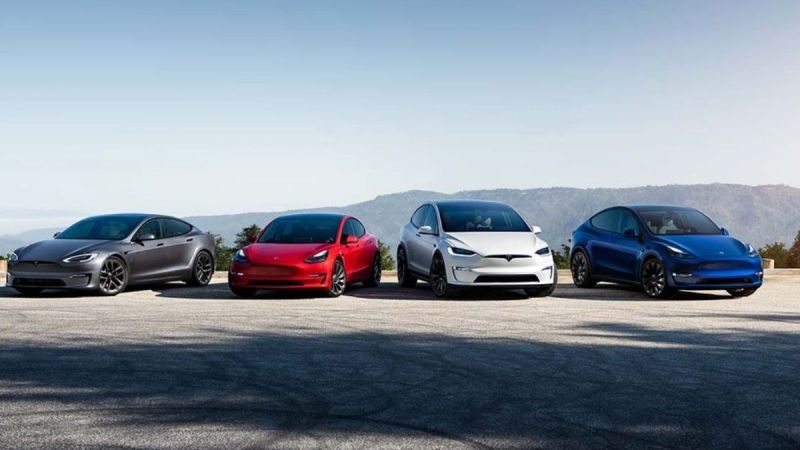In the automotive world, the electric vehicles are still not commonplace. This is partly because of the price of going electric. While you will save money on gas, the car itself is perceived to be expensive. Furthermore, maintenance can cost more and you will pay a high insurance premium every month.
The reality is that there are many cheaper electric cars today. You can get a brand new electric vehicle for as little as $40,000. Is insurance really prohibitively expensive?
Let’s look at how insurance differs for electric vehicles and why.
Electric vehicle insurance vs traditional insurance
For the most part, electric vehicle insurance works exactly the same as regular insurance. Premiums are calculated according to aspects like the price of the vehicle, the age of the driver, the driver’s claims history, the cost of replacement parts and so on.
Your insurance premium will also be impacted by where you live and where you park your car. Because electric cars tend to be on the pricey side, they are valuable targets for car thieves. If you do not have adequate protection for your car, your insurance premiums will be particularly high.
But if electric vehicle insurance is so similar to traditional insurance, why should there be a big price difference?
Repairing an electric vehicle
The price of insurance is, in large part, attributable to the high price of repair on an electric vehicle. This is not because electric cars are more likely to pack up, but rather the cost of replacement parts if they do.
Many parts of an electric vehicle perform a number of different tasks. If they are damaged in a collision, the entire part needs to be replaced.
Parts are also more expensive for electric cars because the technology is relatively new. The parts therefore cost more to be designed and aren’t as readily available.
Another problem is finding a repair shop. When you damage a traditional vehicle, any mechanic near you can fix it. You will have a tougher time finding a mechanic capable of fixing your electric vehicle, and they can therefore charge higher costs.
Actual Cash Value (ACV) vs Replacement Cost
There is another important factor to take into account when insuring an electric vehicle. Most car insurers will offer the actual cash value (ACV) of the car rather than the cost of replacement. ACV refers to how much your car would cost on the market at the time it is in a collision.
The value of your car (from The Insurance Bulletin) is calculated according to its age, any prior damage, wear and tear, and even supply and demand. The ACV technically gives you the opportunity to replace your car with a car in the exact same condition. However, if you financed your car through the bank or it is impossible to find a car in the same condition, the ACV may not be enough to replace your car.
This is especially relevant when it comes to high end electric vehicles. Electric vehicles depreciate more quickly, especially if you have had parts replaced or sustained minor damage in a previous collision. The ACV of your electric vehicle may simply not be enough to replace it with one that is in good shape (or to cover the cost of your vehicle finance).
Tesla Insurance
In 2019, Tesla launched Tesla Insurance. This is an insurance plan specifically designed for Tesla owners (and currently only available in California). Tesla Insurance exists because of the complications mentioned above. In case of an accident, no one is better placed to fix or replace a Tesla than the manufacturer themself.
Tesla Insurance also covers more specific insurance issues than traditional insurers. This includes things like autonomous vehicle owner liability, cyber identity fraud expenses, electronic key replacement and wall charger coverages.
Since it is only available in California to Tesla owners, Tesla Insurance is not yet changing the game. However, it seems inevitable that insurance policies more specifically geared towards electric vehicle owners will start proliferating.
Is it worth it?
The high price of electric vehicle insurance – as well as the uncertainty over whether it will pay out appropriately and sufficiently – is just one more challenge to electric car ownership. The price of electric cars is already high, and having to pay an extra few hundred dollars a month just for insurance may be the straw that breaks the camel’s back.
Nonetheless, electric vehicles are worth paying more to own. They provide benefits to the environment and to the driver, and they are almost certainly the cars of the future. Electric vehicles may not be standard now, but one day they will be.
Paying higher insurance premiums may be an unattractive option, but it shouldn't put you off buying an electric car. Still, compare insurance providers and ask for discounts in order to get the best price possible.
James Greenstone from Digital Content Zone Contributed this story.
Armen Hareyan is the founder and the Editor in Chief of Torque News. He founded TorqueNews.com in 2010, which since then has been publishing expert news and analysis about the automotive industry. He can be reached at Torque News Twitter, Facebok, Linkedin and Youtube.
Set as google preferred source











